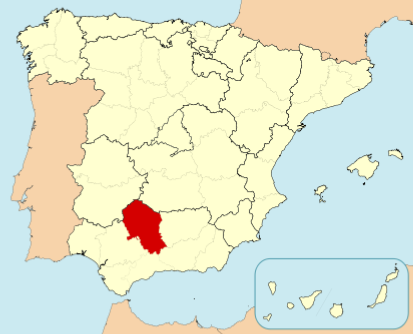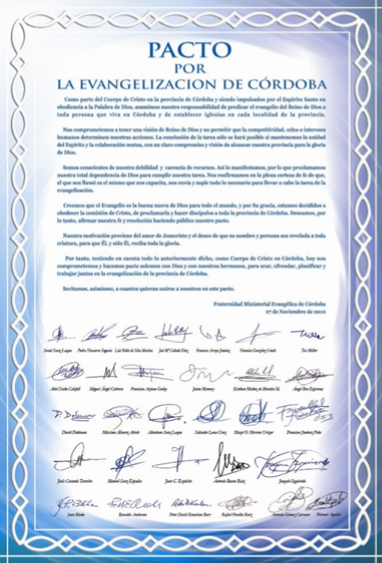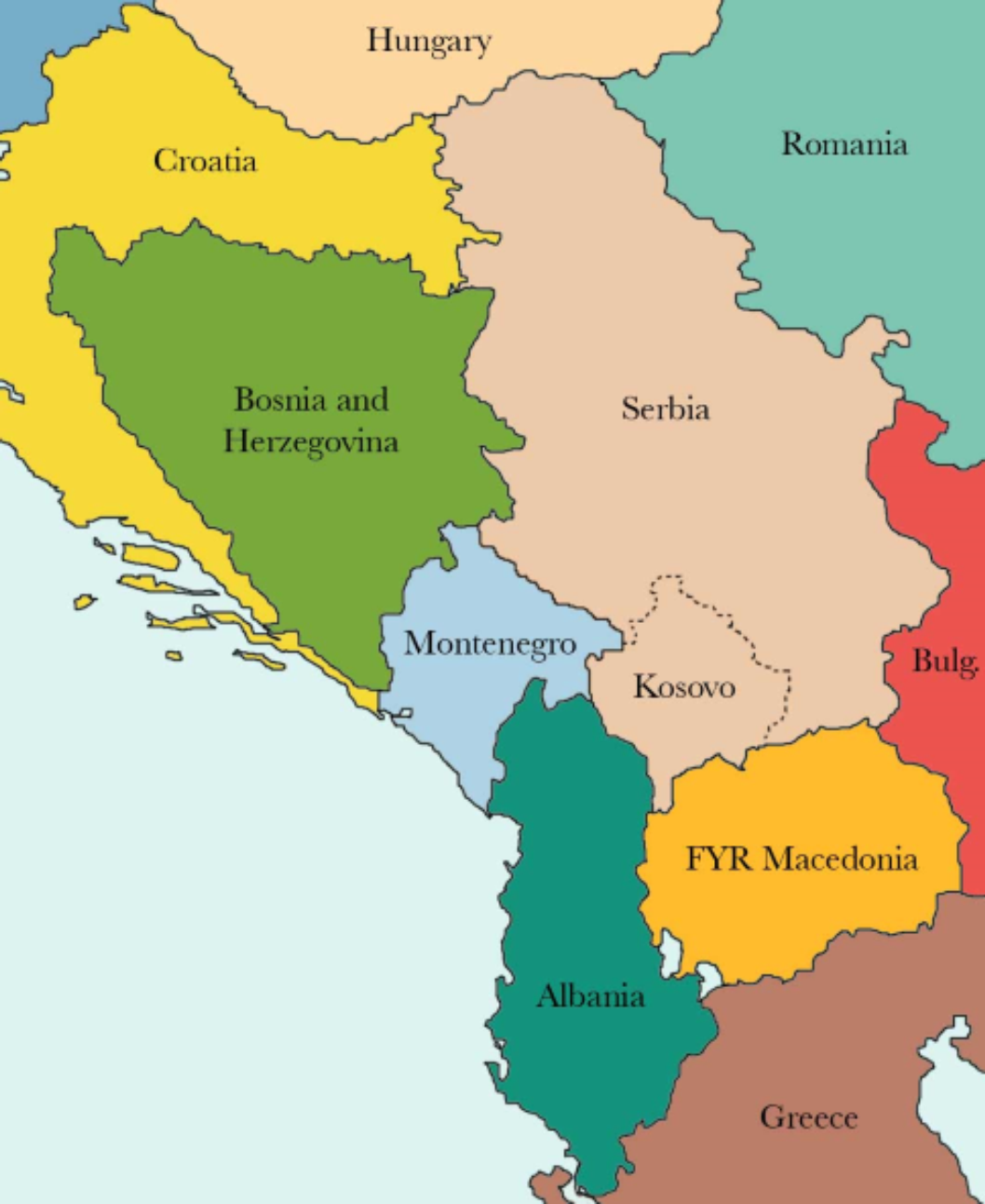The role of mission agencies in stimulating church plantnig movements: ECM - A Case Study
Mission agencies have engaged in church planting across Europe for many decades. Yet increasingly they are engaged in facilitating church multiplication through partnering with national churches rather than being the pioneers themselves. This article illustrates how one mission, in this case ECM (European Christian Mission), has done this in different ways in two very different and challenging contexts. Jim Memory tells the story of how ECM contributed to the start of a collaborative church planting movement in Spain and Stephen Bell gives an inspiring account of how ECM has helped to channel resources from Brazil and the Ukraine to stimulate revival in the Balkans.
A Collaborative Church Planting Movement in Spain
Córdoba is an interior province of Andalucía with some 800,953 inhabitants. As recently as 1970 there were just four evangelical churches in the whole province (Baptist, Independent, Pentecostal, Apostolic). During a visit to Spain in 1975 the then International Director of ECM, Jack Murray, met with the pastor of the Baptist Church who gave him a challenge: “if you send me a hundred missionaries I’ll put them all to work”. ECM took the challenge and the first missionaries arrived in 1978.
Soon further ECM missionaries arrived and began working in a number of the unevangelized towns in the province, establishing churches in five localities during the 80s and 90s. At the same time the pastors of the city churches began to meet to pray and in time formed the Fraternidad Ministerial Evangélica de Córdoba (FRAMEC). Though focussed on prayer the fraternity also enabled inter-church issues to be discussed and occasional united events to be held. There was little common vision for mission however until 1992 when the Expo in Sevilla was held and the fraternity decided to try and distribute a piece of literature to every home in the province of Cordoba, more than 160,000 dwellings at that time. This proved to be a huge undertaking but it had the effect of uniting the churches in a concerted mission initiative for the first time.
Vision 2015
During these years the ECM missionaries had been working towards a vision called 2000/30, the planting of thirty congregations in the province of Cordoba by the year 2000. As the year 2000 approached the number of ECM-planted congregations remained in single figures, yet remarkably when the all the churches and mission points that were in existence were counted up, the total did come to thirty.
Rather than congratulating themselves, the FRAMEC adopted a new vision that by 2015 there would be a church established in every town and city district of more than 5000 inhabitants. The decision was taken to organize a 1st Missionary Conference of Córdoba in June 2002 and a group called the Plataforma Misionera was formed to organize the event. At the conference the churches were encouraged to consider planting in one of the unreached towns. New churches were planted but many of the smaller churches (including many of those planted by ECM missionaries) simply felt unable to do this on their own.
The Covenant
As one of ECM´s missionary church planters in Córdoba at that time, I became increasingly convinced that ECM´s strategy of church planting with teams of foreign missionaries had ceased to be effective. We were planting churches that more often than not displayed a chronic dependency on the missionaries. At the same time I saw huge potential in the development of collaborative relationships with the strong national churches in the city of Cordoba that might be mutually beneficial and this became the subject of my Masters thesis.
Nearly every pastor and missionary in the province was interviewed and their opinions sought on the strategy of ECM and the possibilities and potential pitfalls of church planting through collaboration. It produced some very interesting findings but, more significantly, it paved the way for the reconvening of the Plataforma Misionera and the organization in November of 2010, of the 2a Conferencia Misionera de Córdoba.
This second conference had three significant outcomes. Firstly, there was a much more explicit commitment to plant with specific towns being prioritized by certain churches and others highlighted for concerted prayer.
Secondly, the pastors signed a covenant, an agreement to not compete against each other for growth but rather to work together in reaching the province with the gospel. A framed copy of this document, the Pacto por la Evangelización de Córdoba, hangs on the wall of many churches in Córdoba as a permanent reminder of the commitment to work together in mission.
Thirdly, the Plataforma Misionera ceased being merely an organizing committee for the conference, becoming a permanent commission of the FRAMEC.
Present and future
The Plataforma Misionera continues to meet on an almost monthly basis in pursuit of the following stated objectives:
Promote the Cordoba 2015 vision such that all the towns and city districts of Córdoba of more than 5000 inhabitants might be reached by the gospel.
Act as a nexus for all those taking part in that vision, whether churches of the FRAMEC, mission agencies, denominations or international agencies.
Foster a missionary culture so that, where possible, the churches also collaborate in world mission.
Conduct research studies that might help to evaluate and visualize the spiritual situation in the province of Cordoba.
Organize Missionary Conferences that reflect on the Great Commission, promote missionary vocations and establish common objectives.
Stimulate the churches to prayer and reciprocal assistance in pursuit of our common “Kingdom vision”.
Facilitate these objectives in whatever way possible offering consultancy to churches that seek it and information to those who request it.
As the year 2015 approaches the Plataforma Misionera is already starting to think about holding another conference both to celebrate what has been achieved and to stimulate a final push to plant in the remaining towns.
Today there are over 60 churches and mission points in the province of Cordoba, twice the number there were at the turn of the millennium. I hesitate to call it a “movement” but the potential of a more collaborative approach to church planting has become clear to all.
Jim Memory
References
Instituto Nacional de Estadística, Municipal Register: 1 January 2013 consulted 19 July 2014 http://www.ine.es/
Memory, The Church Planting Strategy of the European Christian Mission in Cordoba, Spain and an investigation of the potential for collaborative church planting, unpublished Masters thesis, Redcliffe College, 2009
FRAMEC, Conclusiones y Delimitaciones de los objetivos de la Plataforma Misionera, unpublished document, 2013
Revival in the Balkans … and nearby friendly countries
The Balkan countries, except for Albania and Rumania have not really seen much Gospel growth since the times of Paul. There are, however a remnant of faithful pastors are working and praying for something to happen.
Back in 2010 ECM’s European Field Director Ron Anderson was visiting some churches in Croatia and Bosnia 2010 and noticed the difficulty. With tears in his eyes he said, “You could use 12 Brazilian missionaries!” So started the vision: to quicken things up through accelerated church planting. So we travelled to Brazil and discovered that in a population of 200 million, 60 million are evangelicals! We also went to Ukraine, where over 2000 churches have been planted since 1991! And that is just amongst the Baptists!
The situation today
Fast forward to 2014 and 9 Brazilian missionaries have already arrived, helping the Varaždin church start two church plants and the Dubrava – Zagreb church start one. Where there was scepticism now there is optimism. Where Christian leaders preferred to “watch the experiment”, now they too are seeking missionaries from these two revival countries.
To date there are 10 churches identified wanting missionary teams of 4 to help them in their task of reaching the lost in Croatia, Bosnia, Serbia and Macedonia. In the New Year we are expecting a second wave of 17 Brazilian missionaries and our first Ukrainian missionaries to reinforce 7 of these churches. Doors of opportunity are wide open in the Balkan countries!
Vision for the future
We are encouraged with what is happening, but the task is frightening in its awesomeness. So many lost. So few churches. So many obstacles. However the Lord of the Harvest is surprising us as we take simple steps of obedience. The Hungarian Baptists heard about the vision and wanted in. They want to receive Brazilian missionaries to help their church planting teams in the south of Hungary. When the Brazilians have learnt Hungarian, they want to send them over their southern border to Serbia and plant churches in Subotica, a university town.
Whilst visiting a Bible College in São Paulo we met Liberio a Brazilian Pastor who leads a movement which has planted 40 churches amongst students throughout the world. He wants to send Brazilian students, professors and professionals to live in the Balkan campuses and start churches. These guys are serious! Also, the Hungarians are asking the Ukrainian Biblical Education by Extension (BEE) co-workers to train their church planters “en route” to the Balkans!
So, what could we see by 2020?
We are praying for at least 100 missionaries from Brazil and Ukraine by 2020. In October 2014 we will hire a 50-seater bus, taking Brazilians and Ukrainians to conferences in Croatia, Serbia, Slovenia and Hungary to expose them to the needs and potential and to encourage the local churches. In 2015 we will take 15 Balkan pastors to Brazilian cities Sao Paolo, Rio Janeiro and Recife to make an “Impact Visit” – to give our own Macedonian Call to Europe: “come over and help us!”.
More broadly we are actively seeking “live and evangelistic churches” with aspirations to grow and start further churches. We want to partner with these churches and provide missionary teams to enable them to form a “cluster church planting zone” whereby they can attempt simultaneous church plants. If this is multiplied in a coordinated way we believe that a church planting movement will form. This involves a change in mentality.
Stephen Bell



